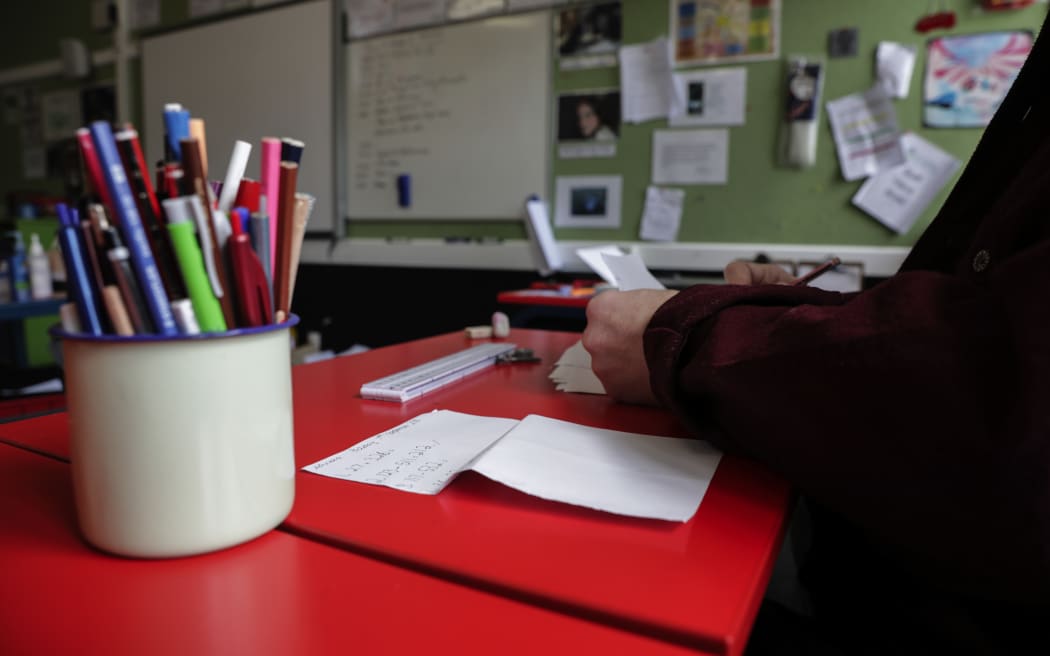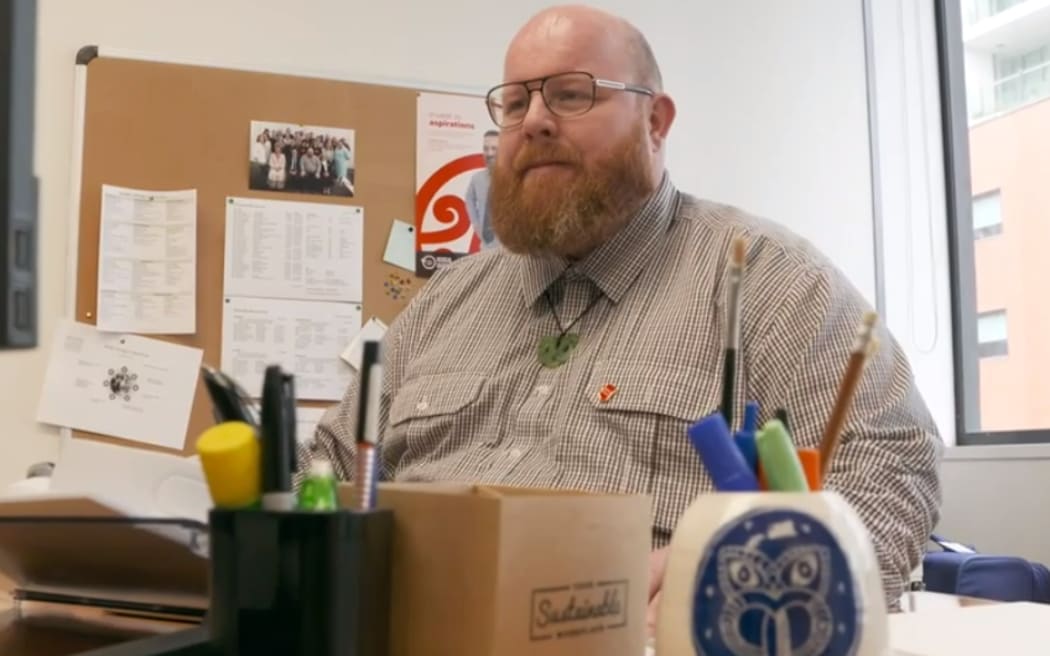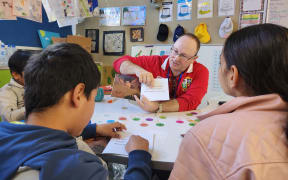
Photo: RNZ / Richard Tindiller
The Post Primary Teachers' Association (PPTA) has added to warnings about high immigration putting pressure on the education system.
This week, Auckland school principals warned of pressure on classrooms after increased immigration saw a surge in enrolments.
Nearly 16,000 new pupils have enrolled in schools across Aotearoa this year but Auckland schools have gained more 8000 pupils - their biggest jump in 20 years.
Most of the new students have parents on residence or work visas.
Rangitoto College principal Patrick Gale - whose North Shore school will grow from 3500 to 3700 next year - told Morning Report that the Ministry of Education had failed to warn schools of growth.
PPTA acting president Chris Abercrombie told Nine to Noon that the unpredictability of the growth was the issue.
"Traditionally you'd have some international students start at the beginning of the year, but we're getting new students turning up every day. And it's putting a lot of pressure on our schools, particularly in terms of teaching ESOL (English as a Second Language)."
Abercrombie said the situation was occurring across New Zealand, but was particularly acute in Auckland.
"During the pandemic, many schools shut down or scaled back their ESOL departments, and teachers lost their jobs.
"It's really hard to scale up a teaching workforce. We don't have teachers just sitting around, waiting to be called up, particularly in specialist areas.
"ESOL is a really specialised area and it's different to ramp that up as quickly as we need to."

PPTA acting president Chris Abercrombie. Photo: RNZ / Angus Dreaver
Abercrombie said immigration numbers could be difficult to predict, and it was important to distinguish between international students and students from migrant families and the impact they had on school resources.
"We know people love our education system. There are 3000 students paying quite a lot of money to come here and learn ... but we've got tens of thousands of other students coming here.
"International students pay; migrant students don't - so there's not that extra funding for them, that international students generate."
This meant that students were being taught outside of classrooms, he said.
"We start teaching in spaces that weren't meant for teaching - in the library, in common spaces - and you start increasing your class sizes significantly to match it.
"That's also doing a disservice to these new students with English as a second language. You're potentially putting them in a class with 30, 35 other students. Are we meeting everyone's needs in this area?"
Abercrombie said the surge in new migrant students was not a one-off and inaccurate roll predictions were an issue.
"I think these students are going to be around for a very long time.
"Every year we get the roll prediction and we often joke it's a third, a third, a third - a third of schools will be spot on, a third will get it wrong and they've got more students than predicted, a third will have less than predicted.
"Principals know their schools and know their communities so often they'll take a gamble on their roll growth. They know what type of houses are being built ... they know that's going to increase the number of young people coming into their community."
This was compounded by the deteriorating physical quality of school nationwide, he said.
"Our stock has been getting really old and there are issues with that stock - such as asbestos, leaky buildings and mould.
"There was a long decline in the quality and building of new schools. [They] have not been well looked after.
"The ministry has not invested money [until]... the last government. It invested a significant amount in rebuilding schools but that took a long time.
"And we know that new subdivisions are going to need schools and it's a long-term process. There is a lot of short-term thinking - we've got to think (in terms of) a 10-year time frame and we just don't do that in New Zealand."




